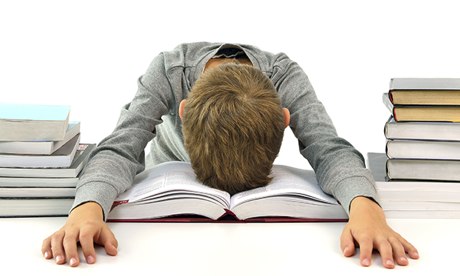
Is your teenager still awake at midnight, even though they have school the following day? Do they complain about not feeling too good? A study published in the Journal of Sleep Research confirms what many parents have long suspected: if teenagers do not get enough sleep, they can get sick.
Lack of sleep has already been linked in other studies to high cholesterol, obesity and depression. But for those effects, you have to wait years to say: "I told you so." This latest study found that short-term effects, such as colds, flu and gastroenteritis, were more frequent when teenagers had less sleep.
The study followed 56 teenagers aged between 14 and 19 for three months. They wore actigraphs on their wrists that measured movement (and therefore sleep) and were regularly interviewed about illnesses and absences from school. Those who slept for fewer than seven hours a night had more sickness.
The lead author, Kathryn Orzech, says research shows that teenagers need 9.5 hours sleep a night, but on average get only 7.5 hours. "But this doesn't mean that it is normal for teenagers not to get enough sleep," says Orzech. "Teenagers have lots of demands on their time, but they need to learn to manage their sleep."
So should you interfere with your teenager's sleep patterns or just wait for them to grow up?
The solution
Sleep problems are common in teenagers, with some studies suggesting up to three-quarters of them are affected. It is normal for teenagers when they reach puberty to develop a sleep phase delay in their normal circadian rhythms so that they fall asleep later in the evening and wake up later in the morning. Melatonin levels fall towards dawn, which makes it harder to go to sleep – but sleeping until midday at weekends creates a situation akin to jetlag by Monday morning because of the shift in circadian rhythms.
These normal sleep disturbances, combined with teenagers' natural tendency to stay up late, can make them excessively tired, irritable, impatient and depressed.
All of which suggests that helping your teenager to get enough sleep is a good idea. A series of small Scottish studies found that 20% of teenagers fell asleep in class at least once over a two-week period.
Orzech suggests a regularity of bedtime and waking-up time every day (although she acknowledges getting a teenager up at 7am on a Saturday is not going to happen), with restrictions on technology at night. Teenagers should be encouraged not to be available 24 hours a day on their mobiles, Facebook and Instagram accounts. Negotiating the limits of time spent using technology with a teenager is never easy and neither is encouraging them to go to bed. But you should probably try.

